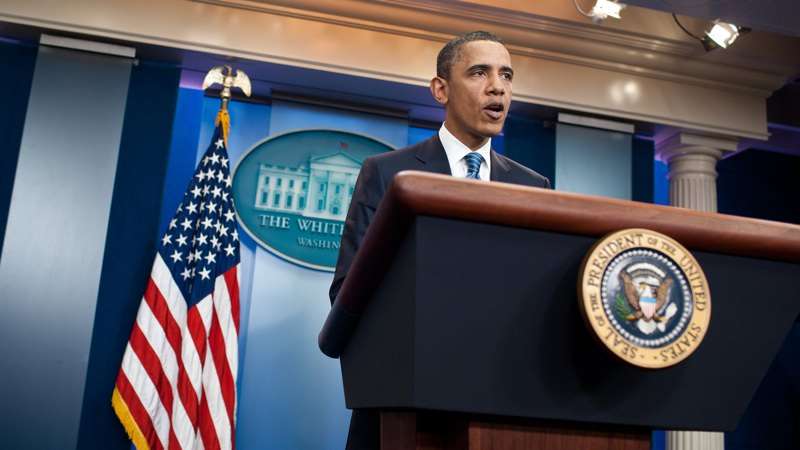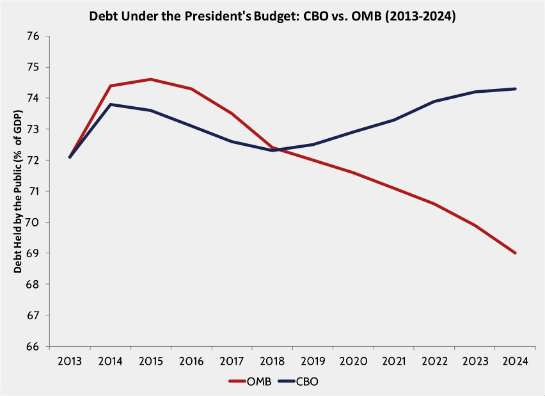CBO vs. OMB on the President's Budget Plan

Each year the president releases a budget plan, and each year we get two different sets of projections about what the effects of the budget plan would be if it were enacted.
First, accompanying the budget plan, we get the White House's outlook—the projections from the Office of Management and Budget (OMB). A little while later, we get a different set of projections from the Congressional Budget Office (CBO).
The CBO report, which was released this morning, compares the president's budget against the current baseline—what the CBO expects from the budget should all current legislation stay in place. It's revealing, however, to also compare the CBO's estimates to those produced by OMB. Inevitably, some of the estimates that come from within the White House are much rosier.
For example, via Gordon Gray at the American Action Forum, a conservative think tank, here's how the White House's projections of debt held by the public as a percentage of GDP stack up against the CBO's projections of the same.

That's a pretty big difference. There are numerous reasons for the difference, many of which are fairly technical. But in general, the CBO and the OMB use somewhat different baselines, meaning the projections have different starting points. The OMB also tends to rely on brighter assessments of the economy's future, which in turn makes its overall outlook sunnier.
It's a good thing that we have these competing estimates. For one thing, each one provides a check on the other. Both scorekeepers know that their estimates will be checked against the other, so neither wants to go too far out on a limb. This is especially useful for helping check OMB's natural political incentives for optimism. As part of the White House, there are obvious reasons why OMB tends to see brighter economic futures; CBO's follow-up score helps make sure that optimism doesn't get too far out of hand.
For another thing, the competition serves as a reminder that these estimates are just that—estimates, subject to all sorts of uncertainties and prediction problems. Official Washington has a tendency to treat these projections as something approaching gospel truth, but no forecaster has a crystal ball. These best experts often disagree, which means that someone, and possibly everyone, is wrong. These projections offer generally helpful expert guides to the possible effects of policy making, but they don't tell us what will happen, only what might.
Granted, there's an added wrinkle when it comes to President Obama's consistently dead-on-arrival budget frameworks. We can't be exactly sure of what would happen if we implemented the administration's budget blueprint, but we can be fairly certain that it doesn't matter much either way, because that's not going to happen.


Show Comments (23)